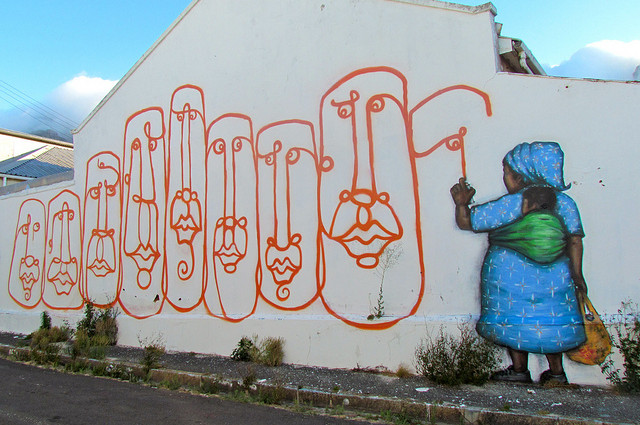In my recent Politics article, I outline how I have used elements of popular culture (from film and novel excerpts to songs to maps, magazine covers or political cartoons) in order to seize on the opportunities and challenges inherent in teaching a 3rd year specialist module on Africa’s international relations. These challenges and opportunities have much to do with what I would call Africa’s fake proximity. It is a neighbouring continent, about which we hear on a regular basis. We thus know it a little, enough to also be aware that it is the object of a considerable number of clichés and myths. But we are not necessarily certain what is reality and what is myth. I have discovered, over the years, that even my African students, or students of African origin, are not immunised against some common pre-conceptions about Africa. The short format of the module – 48 hours – is another challenge. It hardly offers enough time to go into a comprehensive and detailed study of an entire continent’s international relations, but can, if well used, invite students to acquire the knowledge and tools to think critically about these throughout their lives.
A number of colleagues have documented their use of popular culture to introduce students to core international relations and politics. It remains, however, a somewhat controversial method of teaching, as shown in a recent article in the Guardian documenting the closure of a module using the artist Beyoncé as a thread to introduce students to Black feminist politics at Rutgers University in the US. Critics wrongly assume that using popular culture in academic teaching will necessarily amount to over-simplifying our complex social sciences. Like many colleagues, I have found that, on the contrary, by first engaging students through material that is more familiar, and approachable, than traditional academic works, it ensures their continued interest and gives them the confidence to ask important questions, dig deeper into key issues and study academic works and theories more thoroughly. It also engages students, importantly, on a different, emotional level that usefully complements the cognitive level we appeal to more readily in higher education. Critics also tend to overlook the fact that popular culture is an essential political arena where our understanding of key political issues and concepts is formed. Understanding this is particularly relevant with regards to Africa, a continent that has long been and continues to be the object of a very specific imagery in Western imaginations with very real implications for international relations.
I outline in the article in greater detail how I integrated popular culture into the module by asking students to consider and analyse different documents in class and then in the final exam. Both the module and the specific use of popular culture received very positive student feedback. I also felt that it made for greater student engagement and lively debates, and that it encouraged students to work on some essential analytical skills. There are nonetheless two specific challenges I had to consider as I sought to improve the module. The first was the need to integrate popular culture throughout the module, i.e. in the content, learning outcomes and assignments, rather than just superficially in a few classes. This ensured that it was more than just an illustrating tool, and became an essential lens through which students acquired a new, complex layer of understanding of Africa’s international relations and politics, and of the many political arenas where these are formed. The second was the importance – and difficulty – of striking the right balance between the module’s knowledge-focused and skills-focused elements, between breadth and depth, and between coherence and diversity in the material used. These issues will sound familiar to many lecturers but were all the more significant given the diversity of popular culture material and of Africa’s international relations, and the module’s relatively short format. My solution has been to juggle the need to provide some essential content, and fulfil academic expectations, and the wish to address students’ diverse interests and preferences, and surprise them.
Feature image courtesy of: https://www.flickr.com/photos/guillaumeducros/

